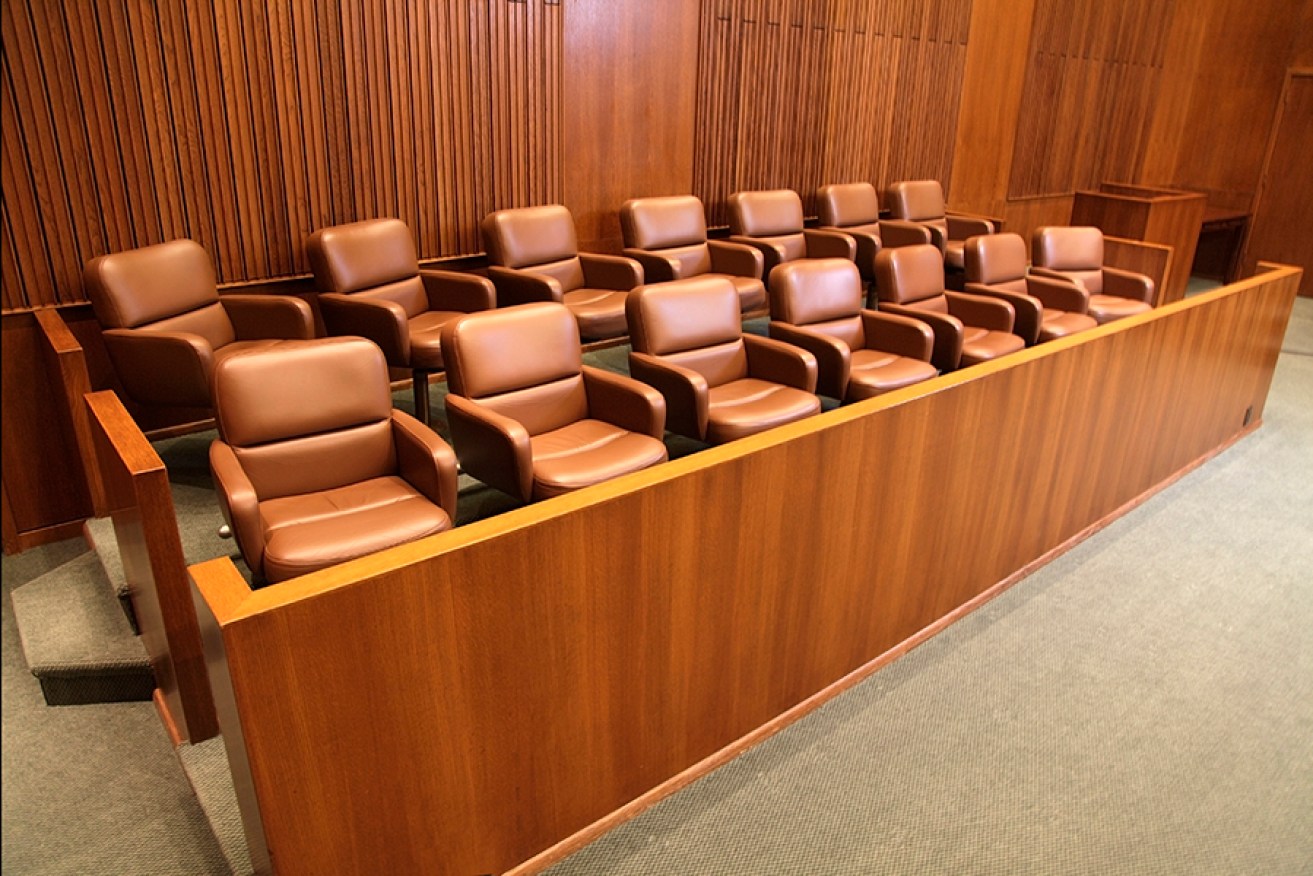Ouija boards and split decisions: jury trials under threat


Courtroom Jury Box
The collapse of the murder trial of Robert Xie, where the jury was unable to deliver a verdict, has once again drawn attention to the flaws in the cherished system of trial by jury.
The trial of Amirah Droudis, ex-partner of Lindt Cafe gunman Man Haron Monis, is set to go ahead without a jury.
• Man Haron Monis: terrorist or lunatic?
• Why Australia is obsessed with anti-terror laws
• Why national security should NOT be above politics
• Tougher terror laws won’t stop ‘lone idiots’
So is it time to ditch the jury altogether?

Amirah Droudis, former wife of Sydney siege gunman Man Haron Monis, will not be judged by her peers on charges of attempted murder. Photo: AAP
As recent cases have shown, jury trials can be lengthy, expensive and open to accusations of arbitrariness and bias. We often assume that the jury is to provide a ‘fair trial’ but it is more complicated than that.
There are problems and, yes, we must work to resolve those problems to ensure a fair trial for the accused. But will the Australian public be confident that Amirah Droudis will receive a fair trial if there is no public input to that process?
Your chance to govern
Juries matter – and not just for the accused.
One, often unacknowledged, aspect of jury trial is that it involves citizens in the process of governing.
Just as voting involves us in the process of choosing our legislators, jury trial involves us in the application of those laws. US research shows that those who have served on a jury are more likely to vote – they are more civically engaged. Serving on a jury makes people better citizens.
The right to trial by jury is a right to sit on a jury as much as it is a right to have your case heard by a jury.
In the early days, trial by jury was deemed inappropriate for the Australian colonies. That changed. By 1810 there was a push for jury trial in NSW when Governor Macquarie argued that sitting on a jury would powerfully symbolise the transition from convict to free man.
Deadlocked

UK TV series Shameless provides an extreme look at one potential flaw with jury trials.
In the 1957 movie 12 Angry Men Juror 8, played by Henry Fonda, holds out against his peers ensuring a thorough discussion of the case – guaranteeing justice for the accused.
The UK TV series Shameless parodied this: juror Frank Gallagher delayed a verdict because he fancied a free hotel room for the night.
But the evidence suggests that jurors take their task very seriously. The New Zealand Law Reform Commission noted that, having served on a jury, people feel overwhelmingly positive about jury trail and report a sense of “satisfaction at having done their civic duty”.
Challenges for 21st century juries
Problems with jurors visiting crime scenes, discussing the case on social media and, in one infamous UK case, attempting to contact a murder victim via a Ouija board have done little for the reputation of jury trials.
Additionally, the complexity and technological nature of modern trials are undoubtedly difficult to negotiate and with all the goodwill in the world, lay people may not be able to understand the evidence presented.
If juries are incapable of understanding evidence then it might impede the right to a fair trial to persist with juries.
On the other hand, if prosecutors explain that complicated evidence to juries, the basis for conviction might also be better understood by the public.
Additional concerns exist around jury bias. In the past concerns focused on jurors being subject to intimidation – resulting in miscarriages of justice.
In recent years the argument has focused on the potential for juror prejudice to impede the ability of juries to deliver a fair verdict for the accused.
Both risks are real.
Protected by law

Although they’re protected by the Constitution, there are legal loopholes to avoid jury trials in Australia. Photo: Getty
The place of jury trial in Australia is acknowledged in the Constitution. Section 80 states that “trial on indictment of any offence against the law of the Commonwealth shall be by jury”.
That seems relatively straightforward – but what does indictment mean? The High Court has rejected the idea that ‘indictment’ means ‘serious’.
Instead, the Commonwealth Parliament is free to categorise very serious offences as summary offences avoiding the need for a jury trial.
At State level the law, broadly speaking, presumes jury trial. But options for avoiding trial by 12 randomly selected laypeople do exist.
For example, the Criminal Procedure Act 1986 (NSW) sets out the summary/indictment distinction. But section 132 of that Act details procedures for trial on indictment by a judge without a jury. Those procedures focus on the interests of justice and the consent of the parties. So trial by judge alone for serious offences is an option.
* Dr Fergal Davis is a senior lecturer in law and member of the Gilbert and Tobin Centre of Public Law at UNSW, Sydney. He has over a decade’s experience lecturing on parliaments, human rights, law and terrorism in Australia, Ireland and the UK and his research has been published internationally. He tweets about law and politics @fergal_davis.









